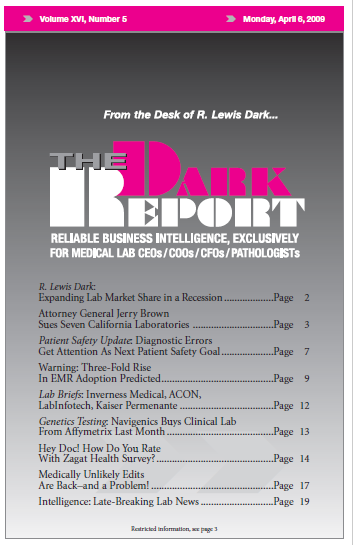CEO SUMMARY: On January 1, 2009, CMS implemented Phase VIII of its policy on medically unlikely edits (MUEs) involving about 100 laboratory CPT Codes. It also began to deny whole claims, not just the “medically unlikely” parts of claims. After hearing of the problem in early March, ACLA, CAP, and other lab groups stepped in …
Medically Unlikely Edits Are Back–and a Problem! Read More »
To access this post, you must purchase The Dark Report.


